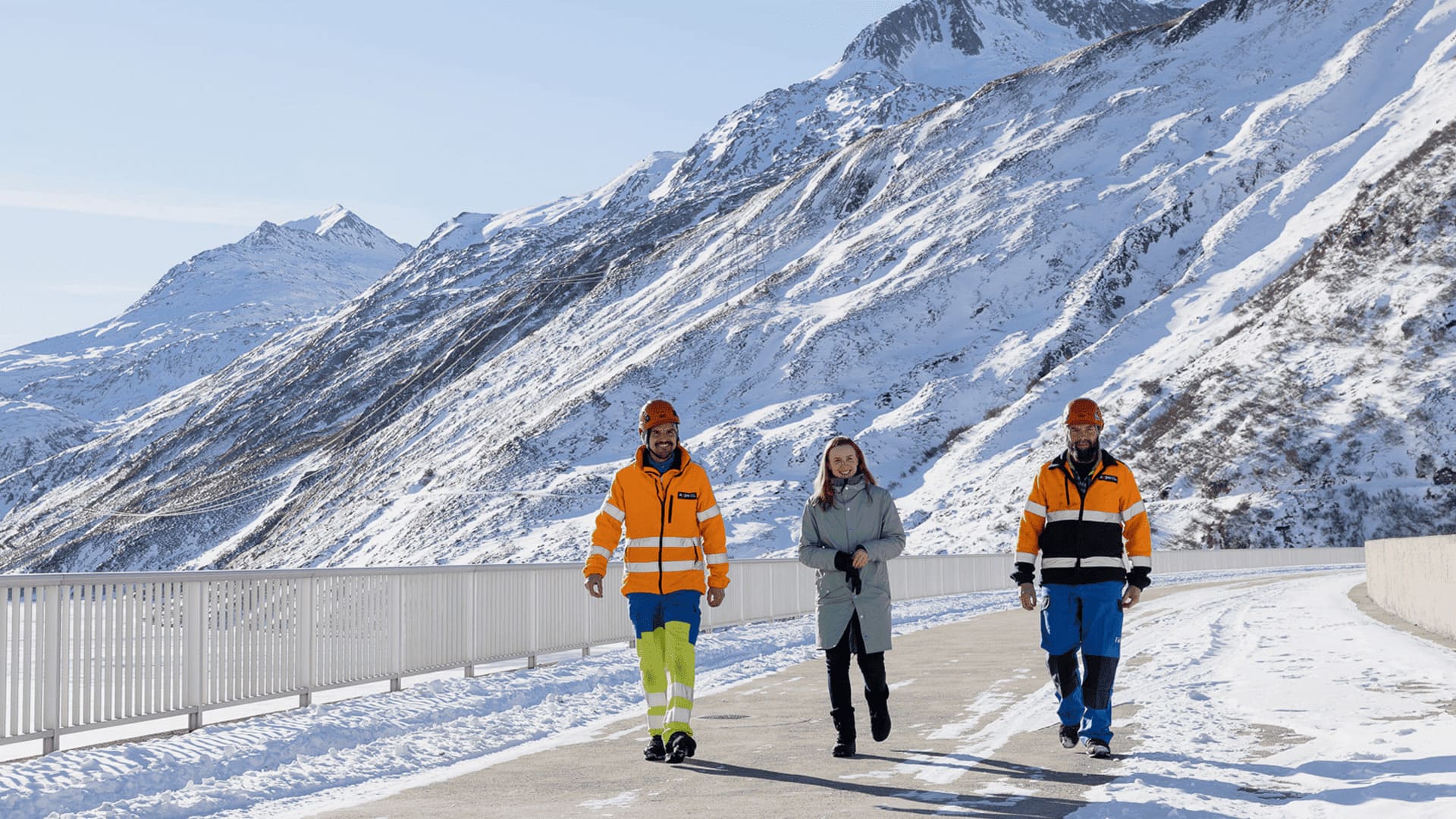03.07.2019 | EROS Electric guarantees renewable, local, CO2-neutral power for electric vehicles
In love with clean electricity
In love with clean electricity – the founders of EROS Electric. With a subholding in the Frisal power plant, they offer renewable, CO2-neutral power from domestic hydropower for electric vehicles. Jörg Huwyler, Head of Hydro Energy and Biomass at Axpo, and a colleague from his time in the military came up with the idea.
When some 50 electric-vehicles are lined up on the Sedrun dam for a group photo it is anything but ordinary. Or when Tesla's long-awaited Model 3 is presented exclusively to Swiss media at the Eglisau power plant, it’s simply spectacular. EROS Electric, an independent association for the promotion of clean energy, is behind these events. To avoid any misunderstandings: EROS has nothing to do with the Greek god of love. The abbreviation stands for "Energy, Renewable, Original, Sensible". However, there is love in all this because the founders of EROS say they are "in love with clean electricity".
Making electricity an experience
Or as Jörg Huwyler, Head of Hydro Energy at Axpo, puts it: "With EROS Electric we want to make electricity an experience." He founded the association about two years ago together with a colleague from his time in the military. As Tesla drivers they both know: Electric vehicle owners are demanding. This not only applies to the vehicles, but also to the whole electricity-driven mobility package. An important question in all this is: "Where does the electricity come from?" For EROS Electric customers the answer is clear: "From my own, squeaky clean Frisal power plant." How does that work? Jörg Huwlyer: "EROS Electric has secured a contractual subinterest in the Frisal power plant near Brigels through Axpo Hydro Surselva. EROS Electric customers take on a sponsorship and in return receive a certificate that guarantees them a certain number of kilowatt hours." An annual contribution of CHF 230 gets the customer a certificate for the annual output of 30,000 kilometres with an electric vehicle (6000 kWh). Frequent drivers receive certificates for about 10,000 kWh for a fee of CHF 295, which is sufficient to cover about 50,000 kilometres per year. But that's only half the story. Customers can purchase these clean certificates for electric vehicles at many power companies. The special feature of EROS Electric's product is that it always guarantees that the power was really produced at the Frisal power plant. If the Frisal power plant isn't in operation, the Eglisau power plant takes over. This socalled simultaneity is certified by the association.

All controlled by an app
By means of an app, customers can check how much their own power plant holding produces or the battery status of their electric vehicles at any time. The app also displays how many EROS customers are charging their vehicles simultaneously. Tours of the power plants and events such as the ones mentioned are organised – to make electricity an experience. The next yearly event will take place on Saturday, 17 August at the Zervreila power plant. More information on the event and the association is available under https://www.eros-electric.com/
EROS Electric is still in its early stages. In the approximately two years of its existence some 150 electric vehicle drivers have become customers. For Jörg Huwlyer it is clear that in order for e-mobility to establish itself on a nationwide basis this must be done with ecologically produced power. Models like EROS Electric and Axpo's clean hydropower could make a significant contribution to this development. They offer customers a guarantee of origin for their electricity and make e-mobility a sustainable carefree package. In love with clean electricity – could prove to be very contagious...


.jpg)




